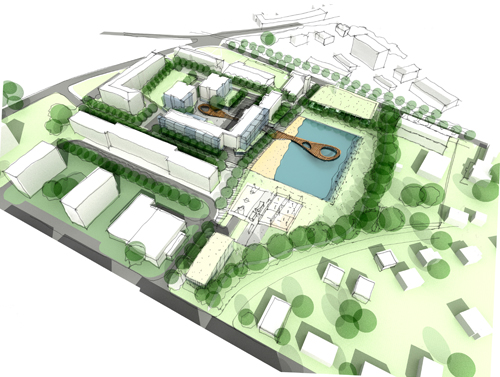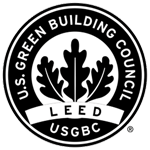Advocacy
ASLA is an active advocate for the profession at the local, state, and national levels on public policy issues, including licensure, livable communities, sustainable design, surface transportation, the environment, conservation issues, historic preservation, small business issues, and providing outdoor access that exceeds the requirements of the Americans with Disabilities Act (ADA).

California Council of ASLA (CCASLA)
The California Council of the ASLA (CC-ASLA) is comprised of the four California Chapters (San Diego, Southern California, Sierra, and Northern California) representing approximately 1350 California landscape architects. The CC-ASLA is the coordinating body regarding state-wide legislative and licensure issues. CC-ASLA monitors bills proposed by the State Legislature that could impact the profession and/or the public realm. CC-ASLA is also involved with the regular sunset review process regarding the Landscape Architecture Technical Committee; the State organization that oversees the licensure of landscape architects. CC-ASLA invests time and resources from membership dues to keep an eye on state regulatory, legislative, and citizen actions and initiatives that affect the profession and our communities.
Licensure
All 50 states have recognized that regulation of landscape architecture is necessary to protect the public health, safety, and welfare. All but three states regulate the profession through a practice act, which requires a license to practice the profession and use the title ‘landscape architect.’ The remaining three states have enacted title act statutes, which is a weaker form of regulation that allows anyone to practice landscape architecture if they call it something else. A practice act is important because of the real danger to clients and the users of these public and private spaces: physical injury, property damage, and financial ruin.

Codes & Regulations
ASLA Policies & Vision
ASLA policies are external documents, adopted by the Board of Trustees, reflecting positions on specific issues, from the perspective of the Society and the profession of landscape architecture. The policies represent the Society’s beliefs, values and visions.
Americans with Disabilities Act (ADA)
The Department of Justice has assembled an official online version of the 2010 ADA Standards for Accessible Design to bring together the information in one easy-to-access location. As of March 15, 2012, compliance with the 2010 Standards is required for new construction and alterations.
The ADA National Network provides information, guidance and training on ADA. They provide assistance and training in support of the ADA’s mission to “make it possible for everyone with a disability to live a life of freedom and equality.”
California/Local Regulations
Landscape Architects Practice Act , Statutes and Regulations
All licensees and candidates for licensure should be familiar with the Landscape Architects Practice Act (statutes) and California Code of Regulations. They are found on the LATC website.
Stormwater
The Municipal Regional Stormwater NPDES Permit (MRP) was adopted by the Water Board at a hearing on October 14, 2009. The MRP covers stormwater discharges from municipalities and local agencies in Alameda, Contra Costa, San Mateo, and Santa Clara counties, and the cities of Fairfield, Suisun City, and Vallejo.
Water efficiency
- The Water Efficient Landscape Ordinance (MWELO or AB 1881) is directed at local agencies to establish local ordinances promoting water efficient landscapes.
- AQUASave , The Smart Irrigation Network , is a network of experts (including landscape architects) committed to save water, save money and stay green by producing landscape water conservation projects.
Graywater
Emergency Rulemaking: California Plumbing Code, Graywater Systems (Title 24, Part 5, Chapter 16A, Part I)
Professional Development
LEED Accreditation
The Green Building Certification Institute (GBCI) administers LEED professional credentials and exams.
U.S. Green Building Council (USGBC) provides education resources to prepare for and maintain LEED credentials

Arborist Certification
The International Society of Arboriculture (ISA) is a worldwide professional organization dedicated to the professional practice of arboriculture and administers the ISA Arborist certification.
The California Arborists Association (CAA) is a non-profit organization of professional arborists. Its purpose is to promote responsible and progressive arboriculture practices, continuing education and training, and communication between practitioners, educators, researchers, and other green industry professionals.
Irrigation Certification
The Irrigation Association, founded in 1949, includes over 2,000 corporate and individual members and is dedicated to promoting efficient irrigation. The program includes various credential options.

Certified Playground Safety Inspector (CPSI) Certification
A Certified Playground Safety Inspector (CPSI) is certified to inspect playgrounds for safety hazards and to ensure compliance with national standards. The (CPSI) program is offered by the National Certification Board in coordination with the National Recreation and Park Association (NRPA) and the National Playground Safety Institute.





